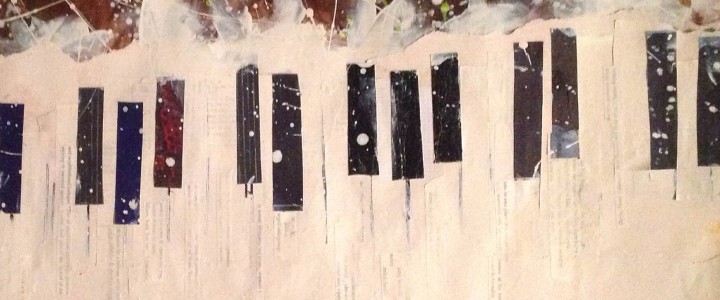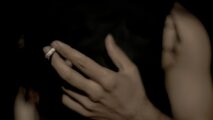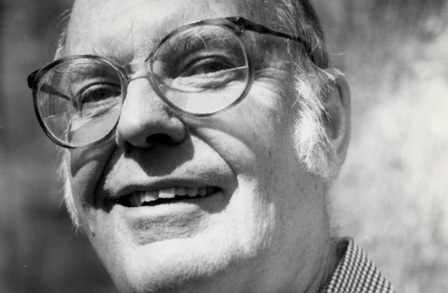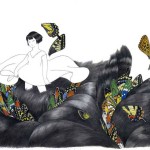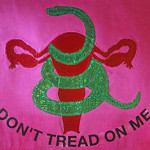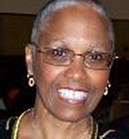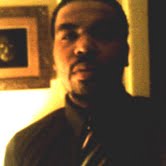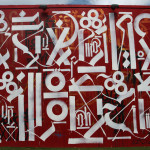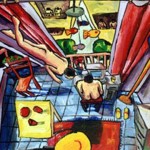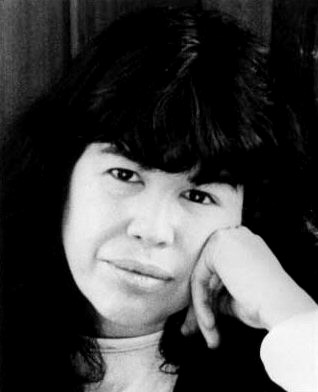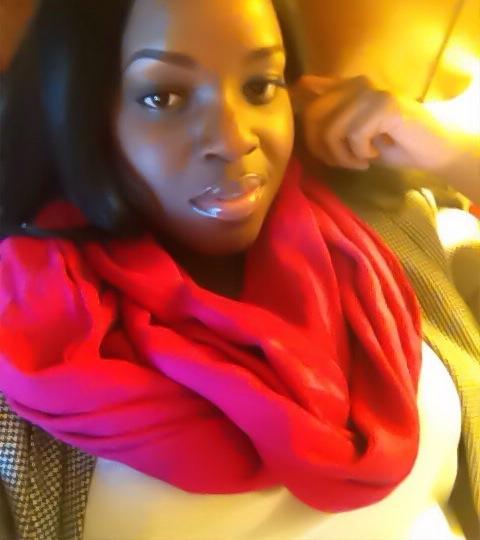I stood at the front door of 2150 Skyview Place and tapped the knocker. It was an impressive house: an old, two-story brick with fat, white pillars. The door swung open. Her hair wasn’t up the way it always had been in class. When she stepped back to let me in, it moved across her shoulders, chestnut shimmers in the sunlight.
We walked through the living room past the fireplace. A huge abstract painting hung above the mantle. Clashes of black with reds and some blues, like they’d been put down during some kind of frenzy, with a big squiggly thing in the corner that reminded me of the chew my dad used to spit when he’d been out drinking.
“It’s my husband’s,” she said.
The living room was arranged perfectly: sofas, chairs, and expensive rugs set just so. The kind of place that would make my mama put her palm to her chest and look around real slow with her eyes wide and her lips slightly parted.
I recognized Verdi’s Aida coming from the speakers in the ceiling because I’d had Professor Rollins for music appreciation. I’d had no particular interest in classical music, but it met a requirement I needed to fill. It was pure coincidence that I’d now find myself in her house a year later.
The music from inside was piped out to the patio. We sat down on some black metal chairs at a table with a glass top. I felt big and clumsy, out of place, a piece of coal dropped on a mound of diamonds.
Professor Rollins picked up a tall pitcher. “Iced tea?”
“Sure.”
“Lemon or sugar?”
“Yeah,” I said and rubbed my palms on my thighs.
She smiled. “Which?”
“Um, uh, both.” I let out a stupid sort of laugh.
She picked up a slice of lemon with some silver tongs and dropped it in the glass, adding two cubes of sugar and a long, glass stick. I sat there with that glass full of tea at that damn little table my knees barely fit under, and I knew it was just a matter of time before I broke something.
One day, back when I was her student, I went up after class to ask her a question, and she said, “Is that a Texas drawl I hear?” She told me she was from Austin, and I realized I could hear the last little bit of Texas left in her when she spoke. As a joke, I told her if she gave me an A in the class, I’d treat her to a barbecue dinner, complete with Dr. Pepper and country music. She just smiled and snapped her brief case shut. I ended up with a C.
Now, sitting outside her fancy house, stirring tea, I felt kind of foolish for some of the things I’d said. She’d probably taken me for some mindless hick.
“My husband is out of the country working. I’m planning to meet him in Paris for two weeks.”
Her delicate fingers opened a leather book and turned its pages slow and deliberate. Her silverblue eyes darted under her long mascara-ed lashes across the pages of the calendar.
“If I leave on the tenth, will that work for you?”
My schedule is always wide open, but I don’t like to seem too eager. “I moved some things around. That’ll work fine.”
We took a tour of the house, and she showed me the room in the back corner of the downstairs. “This is where you’ll be staying. A full bath, and everything you’ll need is on this floor, so you don’t need to worry about the upstairs. The next room is my listening room. You’re welcome to listen to whatever you like. Or bring your own music.”
I took up house sitting my first year of college. Most of the jobs were for a week or two, but after a couple of long sabbaticals and a period of steady work, I decided it made more sense for me, financially, to not keep my own place. So I bought my VW van. It was possible to pack everything I owned—my clothes, one hundred eighty-seven CDs (yes, I still have CDs), my bathroom odds and ends, and my books—in the back of that bus and still have plenty of room.
I didn’t dare tell my mama, though. She would have had a conniption fit knowing her only child was living like that. So I told her I paid low rent on a one-room kitchenette. The lie worked, and I knew I didn’t have to worry about her coming to visit me. She’d never be able to afford that in a million years.
When I got back to Professor Rollins’ house to settle in, I turned the key in the lock and pushed the door open. I hadn’t noticed the clock on the mantle before. Probably because her husband’s painting was so eye-catching and also because there was no music playing now to muffle the clock’s tick. It was an antique, I was sure, like most of the furniture in the house.
My great grandma Carter’s grandfather clock has been in our living room for as long as I can remember. I’m not sure when it quit working, but when I was small its hollow chime used to scare the hell out of me. When the clock stopped, Mama never had the money to get it fixed. As I looked around Professor Rollins’ living room, I envied the educated adult world. It seemed a world where life is set and stable, and I couldn’t, not at all, see myself in that position.
All I could see was my mama coming home every night from the factory where she made prison uniforms, her red fingertips, swollen fat, from forcing silver snaps through the unforgiving blue fabric. The night my dad ran out on us, she sat at our kitchen table, dabbing the blood from her swollen upper lip, holding in her tears, and said “T.J., you can be more than this. Promise me you’ll be more than this.”
“I will, Mama. I promise.”
After I had put my things in the bedroom, I went to the kitchen. The refrigerator was stocked with food, and there was a note on the counter. It said, T.J., There’s plenty to eat in the refrigerator. Make yourself at home. I’ll call soon.
She signed it, Sheri.
Not Professor Rollins.
Sheri.
The S was big and graceful-looking. It reminded me of a swan. The rest of the letters ran together in a short wavy line, and she underscored them all with a big swooping curve. Holding that paper with the name Sheri on it gave me a strange feeling. It wasn’t at all a note written to a student from a professor. It was a note written to T.J. from Sheri. I slid the paper in my jeans pocket.
In the bathroom, two chocolates covered in shiny gold paper rested on a stack of clean towels. I felt like I was in a fancy hotel. I unwrapped one and shoved it in my mouth, and as I chewed it, I wondered why she had gone to so much trouble. I decided it must be because she liked me.
There was a huge mirror to my right. I stepped in front of it and saw the tub and shower stall behind me, encased in clear glass. For a split second, I imagined Sheri (I guessed I could think of her that way now) getting out of that tub, all clean and wet, and being able to see herself in that mirror. I stopped myself and became too aware of my own reflection.
“Big-boned,” Mama always said. I guess I got that from my dad’s family because my mama’s family is all on the slight side. On top of feeling guilty for imaging Sheri naked, I felt foolish. She could never find someone like me attractive. A big-boned girl in Doc Martins, big-cuffed jeans, and short dyke haircut. I thought it best to move away from that mirror and from my thoughts because as I’ve learned, they can cause me grief if I’m not careful.
In the listening room, I lined up my CDs, from Chet Atkins to Dwight Yokum, against the wall. I thought about putting on George Strait, but decided to look at Sheri’s collection. I flipped through a long row of vinyl. The album covers were immaculate. Above them, her CDs. I saw all the names I remembered from class: Beethoven, Haydn, Mozart, Schubert, Verdi, and plenty of others I didn’t know. I slid a Bach CD from its slot on the wall. I turned on the stereo, and speakers from all four corners of the room breathed a quiet hum. I put the CD on, clicked over to the Brandenburg Concerto No. 5 track, and sat down in a soft chair. I closed my eyes to see Professor Rollins in front of the class. She looked spectacular in her red suit and heels, as she explained the theory behind the chord sequence of the piece. Try as I might, though, I was never able to completely grasp what she was saying.
Over the years, I’ve developed my own theory about different types of music and the people who listen to each. I had deduced, from my house sitting jobs, that if you were to look at a person’s music collection, you could get a pretty good idea who that person is, without ever laying eyes on them. Of course, on each of my jobs, I’d always met the people first, so there’s never been a way for me to test my theory.
The Kemps were nice, straight-laced people with Bibles and books about Jesus and whatnot through the house. I always wondered if they secretly hoped I’d crack those books open and be moved to live a different lifestyle. I figured they thought I had a choice. They only had a few CDs, most of which were gospel, and white gospel at that, though they also had a couple of new age things and an Amy Grant album.
The Gibsons had a lot of older Top 40 stuff, which I can take for a few days: REO Speedwagon, Juice Newton, and Kool and the Gang. It was like they’d cared about music at one point and then when they had kids, the music took a back seat.
The Fisher-Jenks wore a lot of leather. He was in the Theatre Department, and she was in Dance. When I got to their house, I was surprised to find everything from Mitch Miller to Prince. They came back a day later than we had agreed without bothering to call me. It took a month of me leaving notes on their office doors and messages on their voice mails before I finally got a check in the mail.
For me, the only music is country. It’s what I was raised on. It’s simple. Its chords are few and they don’t change, like the lives of the people in the songs. The lyrics tell stories of people who want something better but haven’t the vaguest idea how to make it happen. And even though I’m in college – the first person in my family – I know that feeling. It’s something you’re born into, and it takes a lot to get rid of it.
As I sat in the Rollins’ house listening to Bach, I thought my theory was valid. This music was made up of uncountable pieces. I would have guessed the owner of this music to be an educated, cultured and beautiful person who lives a life I couldn’t begin to understand.
One evening, I sat on the soft leather sofa in the living room just to see what it felt like. I had put on Nuages by Debussy. Sheri had mentioned this piece in class. It was her example of simple classical music. She said if you lie on your back and close your eyes, you could see the clouds floating overhead. The sofa conformed to the shape of my body, and I felt more comfortable than I ever had before. I closed my eyes, but all I could think about was the way she had underlined her name with that big swooping line, like maybe I was supposed to notice she had switched to familiarity, like maybe I was supposed to do something about it.
I kept wishing she’d call. Just so I could let her know things were fine. Then I started to wonder how I should address her when I saw her again.
And, I couldn’t stop looking at her husband’s painting. I wondered what kind of person he was and what he was thinking while he was working on it. All I knew was that it looked like an angry mess.
I hadn’t gone upstairs all week, since she had said there wasn’t a need for it, but now, looking at the polished wooden staircase, I figured one look around wouldn’t hurt.
At the top of the stairs, I saw that all the doors, except one, were ajar. I pushed the first one open. It was a large, bright room with lots of windows, and I could tell by the way it was arranged he liked having things in their proper place. On one wall was a shelf full of paint jars, and on a wooden table, some white metal tubes, smashed and twisted, half empty. There was a round vase-type container in the corner holding several brushes. A stack of pallets sat on the floor. A few empty canvases leaned against the wall and next to them were several paintings done by him, I assumed. The Artiste.
I squatted down by the front one. It was an ugly thing, if you ask me. Too many colors mixed together, going in all directions. The paint was thin in some places, letting bits of canvas show through, and thick and bumpy in others. On one side, there was a ridge of brown-green. I pushed it with my finger and jerked my arm back when it broke off and crumbled to the wood floor. I pressed my hand down on the fine chips of dried paint. They stuck, and I went back into the hall and dusted my hands together letting the pieces fall and get lost in the carpet.
The next room was hers. Its small window had a shade pulled over it. It was a stuffy room with a wall full of books, most about music history and theory. More books sat in piles on the floor, and her desk was a scatter of papers and a few cups holding dried-up tea bags. I was surprised at the chaotic and somewhat dirty condition of her room. It seemed out of place.
I moved on down to the room with the closed door. My heart beating faster than usual, I turned the knob and pushed the door open.
Their bedroom was like the rest of the house: it smelled sweet and was filled with nice furniture. The bed was big with long, thin posts at each corner. On the nightstand was a picture of them in brightly colored ski clothes, wearing stocking hats and big smiles. He had his arm around her. Her head rested against his shoulder. They looked good together, I guessed. But, to me, he looked too perfect with those straight white teeth. One of those pretty boys. The Pretty Boy Artiste.
On the adjacent wall was a walk-in closet with more clothes than I’d ever known one person to own. I ran my hand down the row of cool, soft blouses, dresses and skirts, right into a batch of long, silky nightgowns. I pulled the edge of one out away from the rest and could see right through it. I looked to the other side of the closet, where Pretty Boy’s clothes would be and was surprised to see it was almost empty.
My conscience was getting to me; I had never snooped like this before. When my cell phone rang from my pocket, my heart nearly vibrated out of my chest. It was my mama.
“T.J.? Wutcha doing?”
“Um, nothing. Nothing much.”
“How are things?”
“Okay.”
“You sure? You sound funny. You aren’t getting sick or something, are you?”
Her voice was so soft and sounded so far away, and it went straight to my heart. I couldn’t help but think, as I stood in Sheri’s big closet, about how sad my mama must have been most of her life, keeping it all to herself, for my sake. She always managed a smile, like everything was okay, with no promise that things ever would be. And, whenever I’d ask, her answer had always been the same: No, there was nothing you could have done to stop him.
“Naw, Mama. I’m not sick, I’m fine.”
On Monday evening of the second week, when I drove back to Sheri’s house, I noticed the gate to the back fence was open. I pulled into the driveway and strolled down the brick walk alongside the house to the back. I leaned down to pick up the hose to water the back yard, and thought I could hear music. I turned my head to listen, thinking I must be hearing it from a nearby house but found I was wrong. It was one of my Dwight Yokum CDs. I faintly heard the words to “The Distance Between You and Me,” and there she was, when I looked through the window, dancing around the kitchen with a bottle of beer in her hand.
I put the hose back and walked down to the patio, and just as I passed the kitchen door, she whizzed past. She was wearing a blue flowered dress that fit snug around her waist and swirled, loose and graceful at her calves. She spun in a circle, holding tight to the neck of the bottle. It looked like a Bud, which surprised me. I was about to sneak back to my van and pretend I’d never been there, but she saw me.
I stood there looking at her, unable to move, as if they’d poured the cement right in around me when they made that patio. And she did the same, her free hand clamped over her mouth. The music played:
Take a gun, fire a bullet
Straight up out of sight
Where it stops in the heaven
Well that ain’t half as high
As the distance between you and me
She started to laugh. She laughed hysterically, holding her stomach and bending over at the waist. She walked over, opened the door, and motioned me inside.
“Oh, T.J., you found me out! This is embarrassing!” She took a big swig of beer then breathed out a heavy sigh. She pushed the hair back off her forehead. The short ringlets around her hairline were damp with sweat. She must have been at it for a while.
“I, uh, didn’t expect you for another week.”
“Whell!” she said, putting her hand on her hip. “They can have Paris. I wanted to come home.”
I took off my hat and then didn’t know what to do with it. “The Heart That You Own” began in the background. I nodded my head sideways toward the music. “So, uh, you own a pair of shit-kickers, too?”
“Hah! The cat’s out of the bag. I like country music. But!” she said moving closer to me, then finished her sentence in a half whisper, “You musn’t tell anyone!” I could smell the beer on her breath.
“I won’t. I promise.”
She popped the top off another beer bottle. “Here. Have one.”
I took the cold bottle from her.
“You can never take the country out of a Texan. No matter how cultured you try to make her seem.” She held her bottle in the air as if toasting something.
“I never would have guessed.”
She took another swig. “And who would?!” With her free hand, she pulled the side of her dress out and did a curtsy. “To the rest of the world, I’m Professor Rollins, music theorist.” She said ‘music theorist’ with her best stuffy British accent, which made me laugh because she wasn’t very good at it. “Cellist! Member of the String Quartet!” Then she laughed and slapped the side
of her leg just like my grandma did when Mama tried to ride the mechanical bull the day we went to Gilley’s.
The first, three echoey notes of “Nothing’s Changed Here” played. She finished off her beer.
“You dance?” she said.
“Dance?”
She took my beer bottle and my hat and set them on the table. “Show me your stuff, T.J.”
“I haven’t done this in awhile.”
“Me either.” She placed my arm around her waist and took my hand, which had gone sweaty. She smiled a bigger smile than I’d ever seen on her face. “Maybe it’ll be like riding a bicycle.” She smelled sweet, like citrus.
As we two-stepped around her big kitchen, I was surprised how easy it was, like we were a perfect fit. We danced to “Turn it On, Turn it Up, Turn Me Loose,” and I commented how appropriate the song was (I was on my second beer by this time), and she laughed some more. She got real quiet during “It Only Hurts Me When I Cry.” We kept dancing on through “Send a Message to My Heart,” and by the end, she was crying.
“Ah, shit,” she said, wiping her eyes with a napkin. “Now look at me. What a mess.”
“You’re not a mess.”
“I am.” She folded her arms, causing her sleeve to rise slightly, showing three bruises. They were perfectly symmetrical, as if someone had put his fingers on her and squeezed hard. “I am a mess.”
I started to put my finger on one of the marks, which made her step away. “I think you should go now.”
I let myself out the back door just as Dwight Yokum began to twang out the lyrics to “I Don’t Need it Done.”
In my haste to get out of there, I’d left my CDs and the rest of my things, too. I bought a new toothbrush and such, but I couldn’t figure a way to buy one hundred and eighty-seven CDs. I wanted my music, but I didn’t want to go back and bother her. I considered calling so many times and then thought dropping by would be best. I did neither.
After two weeks had passed, I worked up the courage to drive over. With just a few weeks left before summer break, I wanted my music to take back to Texas with me. I drove across town, listening to the Patty Loveless CD my mama sent me for my birthday. When I reached Skyview Place, I popped the clutch and rolled to a stop in front of the house. My hands felt shaky, and my heart rattled in my chest.
Standing on the front step, I heard Bach’s Tocatta and Fugue in D Minor come through the living room window. I hit the knocker on the door a few times. The door opened, and there stood the Artiste. But, he wasn’t all that pretty. He looked like he’d just crawled out of bed. His hair was all over the place, and he wore one of those slick robes. He was a little shorter than me, so he had to look up to me to talk.
“Yes?” he said.
“Um, is Professor Rollins here?”
“She is. And you are…?”
“T.J. I just came to get my CDs and things.”
I heard her voice from the other room. “Phillip, who is it?”
“Someone about some CDs or something?” He shrugged and did a wave, like he was batting away a gnat or something.
Professor Rollins appeared at his elbow. “Oh, T.J., hello.” She smiled a little. “T.J. house sat for us.” She slid her hand in the crook of his arm. I could tell that whatever there had been between me and her had passed.
He raised his chin a little and nodded.
I wanted to ask her if she’d be okay. I wanted to tell him if he laid a hand on her again, he’d have to answer to me. But, I knew if I said anything, it would only make things worse for her.
Those kind of guys are like that. So, I just stood there, my throat feeling swollen.
I watched her face, looking for a signal of some kind. That she wanted help getting out or something. But, she just looked at me like nothing had ever happened. “Let me get your things, T.J.” she said, and they both left.
I waited on their front step, thinking about how her hand rested on his arm. Like it was meant to be there. Despite that, I wondered what it was that made her stay.
They had left the door ajar, and I listened more closely to the music. When we studied the piece in class, she had talked about the passagework and how it was held together by a bass motif repeated so seldom it was next to impossible for the untrained ear to hear. It had all seemed way too involved for me. Now, on their doorstep, I thought that I just might get it.
For just a brief moment, no longer than it takes for an eye to blink, I could grasp how, even though that bass motif was used so seldom in the piece, it was just enough to serve as a foundation to hold the whole thing together. I could grasp how all those notes, compositionally, shouldn’t work together at all, but because of the way Bach had arranged them, as if by some incomprehensible mathematical equation, they somehow did. I understood how they resonated to some universal pulse that vibrates in the same place, in the same way, in every human heart that listens to them.
I wanted to tell Professor Rollins. I wanted to tell her, when she came back to the door that I got it, that her words had finally found their way to a part of me that had never been touched before.
I heard footsteps coming down the hall toward the door. When it opened, there was her husband with my box of CDs under one arm and my bag hanging off the end of his other outstretch arm. Any understanding I’d had in the split second before, any sense I’d made of it all, disappeared, and I noticed how dark it was that day.
He lifted the bag higher, as if he thought the reason I hadn’t taken it from him was because I hadn’t seen it. I took the box and slipped the bag’s strap over my arm.
“Thank you,” I said.
He nodded and shut the door before I had turned around to leave. As I walked down the sidewalk to my car, I could tell by the smell of the air that, despite how low and grey the sky was, it wasn’t going to rain. And I could tell it wasn’t going to change any time soon.
Johnnie Mazzocco is a writer, filmmaker, research artist, and teacher. She was born in Illinois and made a 30-year progression to the west coast via Colorado (16 years) and Texas (3 years). She has lived in Oregon since 1988, is based in Portland, and currently takes long-term house sitting jobs so she can live rent-free and chase her writing dreams. Her background and work experience are long and varied. Prior to her time as an adjunct professor, she worked as a secretary, hairdresser, landscaper, data collector, drill press operator, bartender (still dabbles in this), and mother (still is – always will be). Johnnie possesses a BA in Writing, a Graduate Certificate in Women’s Studies, an MA in English/Film Studies, and an MFA in Digital Arts.
Related Posts
« NOW SHE CAN COPE – Diane K. Martin LOST WOMEN — Martha Clarkson »
